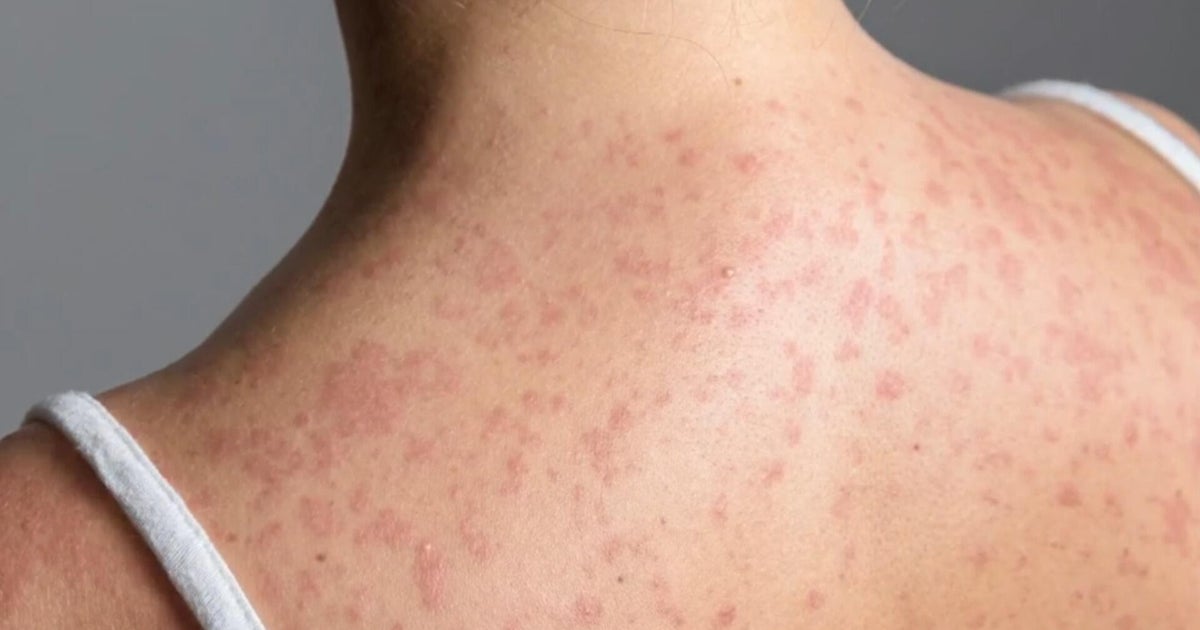Egg Recall Hits 550M
 More than a half-billion eggs have been recalled in the nationwide investigation of a salmonella outbreak that Friday expanded to include a second Iowa farm. The outbreak has already sickened more than 1,000 people and the toll of illnesses is expected to increase.
More than a half-billion eggs have been recalled in the nationwide investigation of a salmonella outbreak that Friday expanded to include a second Iowa farm. The outbreak has already sickened more than 1,000 people and the toll of illnesses is expected to increase.
Iowa's Hillandale Farms said Friday it was recalling more than 170 million eggs after laboratory tests confirmed salmonella. The company did not say if its action was connected to the recall by Wright County Egg, another Iowa farm that recalled 380 million eggs earlier this week. The latest recall puts the total number of potentially tainted eggs at about 550 million.
FDA spokeswoman Pat El-Hinnawy said the two recalls are related. The strain of salmonella bacteria causing the poisoning is the same in both cases, salmonella enteritidis.
Federal officials say it's one of the largest egg recalls in recent history. Americans consume about 220 million eggs a day, based on industry estimates. Iowa is the leading egg producing state.
The recall has put the spotlight on egg production, especially large-scale factory-like facilities like Wright County Egg, where the outbreak allegedly began. The huge plant houses 7 million chickens producing 5.5 million eggs a day. Researchers say even with tougher new FDA regulations, government oversight is too weak with too few regulators to monitor today's mega-facilities, reports CBS News correspondent Bill Whitaker.
Michael Taylor, the FDA deputy commissioner in charge of the agency's food safety strategy, said the government would continue to investigate the outbreak and touted new safety regulations that went into effect in July.
"Well, we have to systematically work to prevent these problems and looking into this case in particular to see what went wrong in these facilities. But we know if we put in place the right preventive measures we can reduce the risk of these problems. We have new rules coming into effect just this summer, actually [that] we think will help in the future," he told CBS' "The Early Show" Saturday.
Whitaker reports that the owner of Wright County Egg, Jack DeCoster, is no stranger to controversy. This year, DeCoster was ordered to pay more than $100,000 for ten counts of animal cruelty caught by hidden cameras. In 2000, he was fined $150,000 and dubbed a habitual violator of Iowa's environmental laws.
The eggs recalled Friday were distributed under the brand names Hillandale Farms, Sunny Farms, Sunny Meadow, Wholesome Farms and West Creek. The new recall applies to eggs sold between April and August.
Hillandale said the eggs were distributed to grocery distribution centers, retail groceries and food service companies which service or are located in fourteen states, including Arkansas, California, Iowa, Illinois, Indiana, Kansas, Minnesota, Missouri, Nebraska, North Dakota, Ohio, South Dakota, Texas, and Wisconsin.
Thoroughly cooking eggs can kill the bacteria. But health officials are recommending people throw away or return the recalled eggs.
The key information for consumers to look for is the plant number, which is displayed at the side of the carton. The numbers to avoid are P1026, P1413, P1663, P1720, P1860, P1942 and P1946.
CBS News medical correspondent Dr. Jennifer Ashton gave some basic tips to minimize risk of salmonella from eggs:
• Avoid consuming raw or undercooked eggs.
• Don't cook with eggs sitting out for more than two hours.
• Always wash your hands after handling egg products.
• If in doubt, throw it out. If you don't know where your carton came from, get rid of it.
A food safety expert at Cornell University in Ithaca, N.Y., said the source of the outbreak could be rodents, shipments of contaminated hens, or tainted feed. Microbiology professor Patrick McDonough said he was not surprised to hear about two recalls involving different egg companies, because in other outbreaks there have also been multiple sources.
Both plants could have a rodent problem, or both plants could have gotten hens that were already infected, or feed that was contaminated.
"You need biosecurity of the hen house, you want a rodent control program and you want to have hens put into that environment that are salmonella free," McDonough said.
The salmonella bacteria is not passed from hen to hen, but usually from rodent droppings to chickens, he added. This strain of bacteria is found inside a chicken's ovaries, and gets inside an egg.
CDC officials said Thursday that the number of illnesses related to the outbreak is expected to grow. That's because illnesses occurring after mid-July may not be reported yet, said Dr. Christopher Braden, an epidemiologist with the federal Centers for Disease Control.
Almost 2,000 illnesses from the strain of salmonella linked to both recalls were reported between May and July, almost 1,300 more than usual, Braden said. No deaths have been reported. The CDC is continuing to receive information from state health departments as people report their illnesses.
The most common symptoms of salmonella are diarrhea, abdominal cramps and fever within eight hours to 72 hours of eating a contaminated product. It can be life-threatening, especially to those with weakened immune systems.
The form of salmonella tied to the outbreak can be passed from chickens that appear healthy. And it grows inside eggs, not just on the shell, Braden noted.
© MMX, CBS Interactive Inc. All Rights Reserved. This material may not be published, broadcast, rewritten, or redistributed. The Associated Press contributed to this report.







